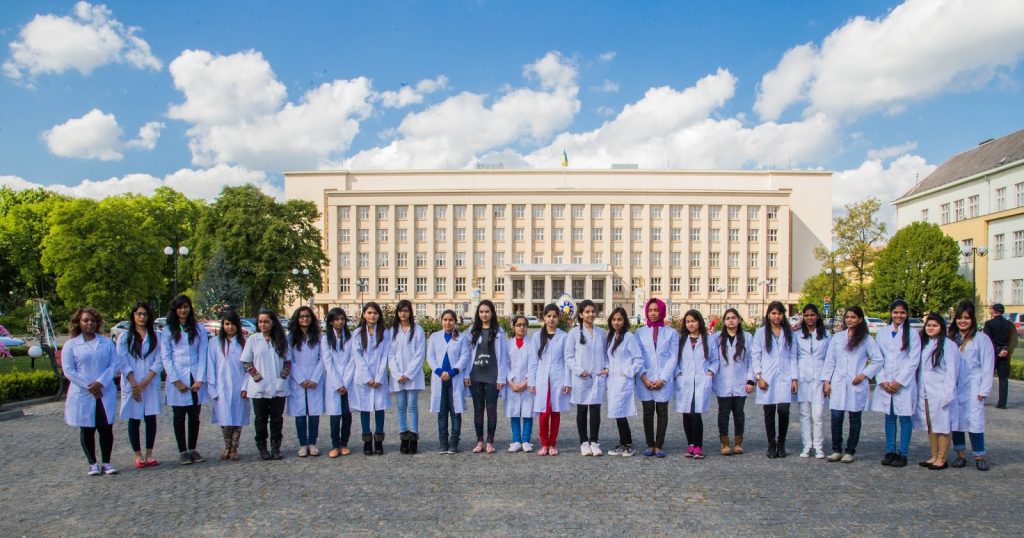Introduction:
Everyone aspires to become a medical professional in the health sector, but the journey towards it is different and has varied routes. Earlier, people did not prefer such institutions due to a perceived demarcation between government and private medical colleges. While government medical colleges, with their lower fee rates, were preferred, private medical colleges can no longer be ignored. This article discusses the advantages and disadvantages of attending private medical colleges, analyzing them to assist prospective medical students with decisive choice-making.
Pros of Studying in Private Medical Colleges
1. Quality Infrastructure and Institutions
Perhaps the greatest advantage of studying in private medical colleges is the quality of infrastructure and advanced facilities they offer. One knows that these colleges provide completely modern classrooms, state-of-the-art laboratories, and cutting-edge medical technology for optimum learning. Most private medical colleges have their own hospitals, providing excellent opportunities for clinical exposure to the students.
Typically, private medical colleges have even more reduced class numbers that allow better personalization by the faculty members. This may lead to a productive learning experience on account of active participation in discussions and even individualized feedback. You may visit CMC Vellore’s official website to know about their infrastructure.
2. More Clinical Exposure
Clinical exposure is necessary for every medical student because, at the end of the day, theoretical knowledge will be related to practical exercise in the clinical setting. There are ample opportunities for practical training as a result of affiliated hospitals or tie-ups with adjacent hospitals from most private medical colleges. The students will get to interact with patients and work under experienced doctors, which would improve their skills on diagnosis and treatment.
Moreover, leading private medical colleges are, in most cases, associated with highly reputed hospitals or medical research centers that offer its students the most advanced medical practices and up-to-date treatment protocols.
3. Global Recognition and International Opportunities
Many private medical colleges in India are recognized worldwide and enroll students from various parts of the globe. These colleges ensure that their graduates are well-prepared to work anywhere in the world. Students may find opportunities for postgraduate studies or professional employment abroad with exposure to the world.
Many private colleges have international university exchange programs that enable students to spend time in many different kinds of health care systems as well as broaden their perspectives.

4. Adaptive Admission Process
The admission procedure into private medical colleges is relatively relaxed compared to government colleges. Because government colleges primarily rely on entrance exams, such as NEET, for admission, private colleges offer multiple routes for admission: merit quota and management quota seats. This allows different academic backgrounds to find an entry point into medical education.
For students who may not have bagged the top rank in NEET but yet want to study medicine, private medical colleges can be a bridge through management quota albeit with a higher fee than state-controlled college counterparts.
5. Research and Innovation Opportunities
Top private medical colleges emphasize research and innovation, thereby allowing students to contribute to the development of medicine. Private colleges equip students with facilities and create an environment that encourages innovative thinking and the implementation of research projects. For those interested in academic medicine or a career in medical research, these colleges provide a strong environment where they can pursue their interests.
Moreover, private medical colleges have collaborations with pharmaceutical companies, research organizations, and healthcare startups to provide students with state-of-the-art medical technologies and research efforts.
You may visit our page, HelpStudyAbroad.com, to get the knowledge about top-ranked medical colleges in India.
Cons of Studying in Private Medical Colleges
1. Expensive Tuition Fees
The major negative aspect of attending private medical colleges is the high fee structures. Though government medical colleges are less expensive, private colleges charge a good amount more for the MBBS program. Even more disturbingly, the amount runs between INR 10 lakh and INR 30 lakh every year, depending upon the college and location.
This could create a huge burden in many families, and with loans and scholarships available, students may still end up graduating with large debt burdens. On the other hand, the seats through management quota that seem to come in handy for more lenient procedures have even more exorbitant fee structures.
2. Limited Number of Seats
The total MBBS seats, however, are still limited in private medical colleges despite the increasing number. So, the competition for getting a seat in a top private medical college is very high. In some of the private colleges, seats are also available under management quotas, which are usually much more expensive, though limited. It is also allocated strictly based on the NEET rank, the student’s mark, and other criteria.
Since there is a scarcity of seats in prestigious private medical colleges, the position is such that though the demand is higher, not all the interested students will be able to get seats, and the battle for admission becomes very competitive.
3. Risk of Exploitation Due to High Fees
At times, exorbitant charges by private medical colleges form an opportunity for exploitation. Institutions may capitalize on the demand for medical education to raise charges every year, introduce sudden extra charges for facilities that were not in the initial list, or tack on unadvertised costs. The consequence is hardships for students and their families.
Sometimes, the quality of education will not be commensurate with the expensive fees being paid, especially in colleges that give more emphasis to profit-making than learning. Prospective students must then undergo proper research on the reputation and accreditation of the college before signing up with one.
4. Lack of transparency and management quota seats
A way out is available with the management quota, though it has its own set of problems. Management quota seat admissions are also secretive and vague in terms of the selection criteria for many colleges and institutions. The cost of these seats is very high, and that does not necessarily reflect the quality of education received at all.
In certain cases, management quota admissions can reduce interaction between students and faculty and limit scholarship and financial aid opportunities. This can lead to a culture where students who pay more are favored, creating an unfair and unequal environment.
5. Limited Campus Placements and Opportunities for Government Jobs
Private medical colleges offer fewer campus placement options and lower chances for government jobs, despite tie-ups with hospitals.
Often, government hospitals and research institutions give priority to candidates from government medical colleges. The public sector may not have comparable opportunities for the graduates of private medical colleges. This can prove to be a major concern for people aspiring to work in government hospitals or seeking government-run medical jobs.
6. Pressure to Perform Academically
The private medical colleges, especially the elite colleges, are usually very competitive, and the academic pressure upon them could even be more severe. The students undergo stress owing to the rigorous curriculum and continuously require good marks. Besides, aggressive peers create an intense atmosphere, leading to burnout and psychological problems for students.
Some students may struggle to balance higher academic demands with increased extracurricular activities, research, or direct clinical exposure. Private medical colleges generally have smaller class sizes, but this can still be very daunting for the faculty and peer expectations.

Conclusion
Choosing private medical colleges offers benefits like excellent infrastructure, clinical exposure, and global recognition, despite potential drawbacks. A major drawback is the high fees and limited seat availability in private medical colleges. The transparency of the admission process is also another complaint.
For students who can afford tuition, private medical colleges offer excellent education and career opportunities with advanced facilities. Researching colleges, understanding the fee structure, and weighing the pros and cons are essential before making a decision.
Your decision depends on your financial situation, career goals, and preferences for a private or government medical college. By considering academic, financial, and professional factors, you can make the best decision for your future as a medical professional.
For any further queries, please follow our official page, HelpStudyAbroad.com.
Book Your Free Consultation Now




